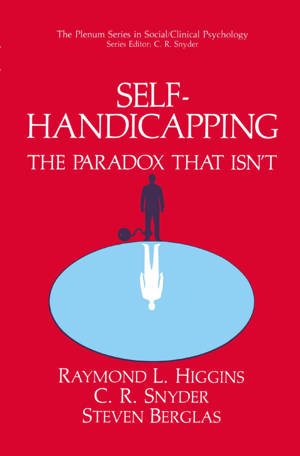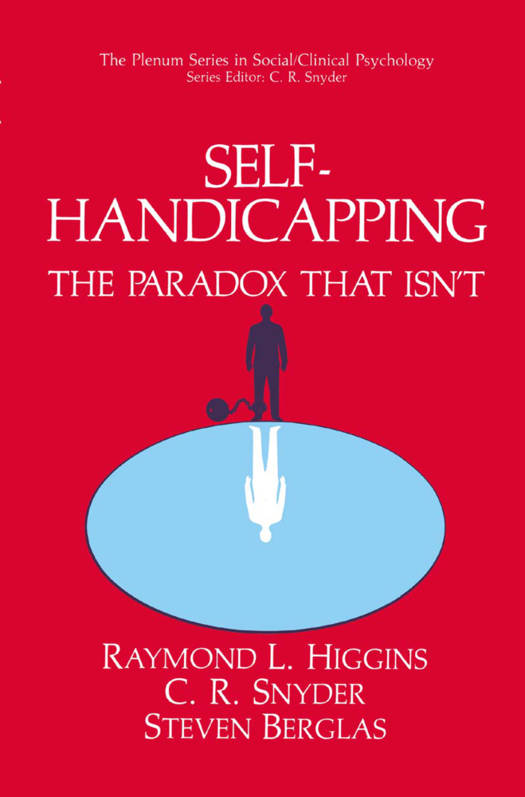
Bedankt voor het vertrouwen het afgelopen jaar! Om jou te bedanken bieden we GRATIS verzending (in België) aan op alles gedurende de hele maand januari.
- Afhalen na 1 uur in een winkel met voorraad
- Gratis thuislevering in België
- Ruim aanbod met 7 miljoen producten
Bedankt voor het vertrouwen het afgelopen jaar! Om jou te bedanken bieden we GRATIS verzending (in België) aan op alles gedurende de hele maand januari.
- Afhalen na 1 uur in een winkel met voorraad
- Gratis thuislevering in België
- Ruim aanbod met 7 miljoen producten
Zoeken
€ 181,95
+ 363 punten
Uitvoering
Omschrijving
The concept of self-handicapping can be legitimately anchored in a vari- ety of intellectual contexts, some old and some newer. As this volume reminds us, Alfred Adler was perhaps the first to articulate the signifi- cance of various self-defeating claims and gestures for protecting the self- concept. Thus the apparent paradox of "defeat" in the interests of "pro- tection. " More recently (but still more than 30 years ago), Heider's "naive psychology" added attributional rhetoric to the description of self-defeat- ing strategies. While predominantly cognitive in its thrust, the attribu- tional approach incorporated several motivational influences-especially those involving egocentric concerns. Heider hardly violated our common sense when he suggested that people are inclined to attribute their performances in a self-serving manner: the good things I caused; the bad things were forced upon me. The notion of self-handicapping strategies, proposed by Berglas and myself a little more than a decade ago, capitalized on these homely truths while adding a particular proactive twist. We not only make ex- cuses for our blunders; we plan our engagements and our situational choices so that self-protective excuses are unnecessary. In doing so, we use our attributional understanding to arrange things so that flawed and failing performances will not be interpreted in ways that threaten our self-esteem.
Specificaties
Betrokkenen
- Auteur(s):
- Uitgeverij:
Inhoud
- Aantal bladzijden:
- 292
- Taal:
- Engels
- Reeks:
Eigenschappen
- Productcode (EAN):
- 9780306435409
- Verschijningsdatum:
- 30/06/1990
- Uitvoering:
- Hardcover
- Formaat:
- Genaaid
- Afmetingen:
- 156 mm x 234 mm
- Gewicht:
- 616 g

Alleen bij Standaard Boekhandel
+ 363 punten op je klantenkaart van Standaard Boekhandel
Beoordelingen
We publiceren alleen reviews die voldoen aan de voorwaarden voor reviews. Bekijk onze voorwaarden voor reviews.












